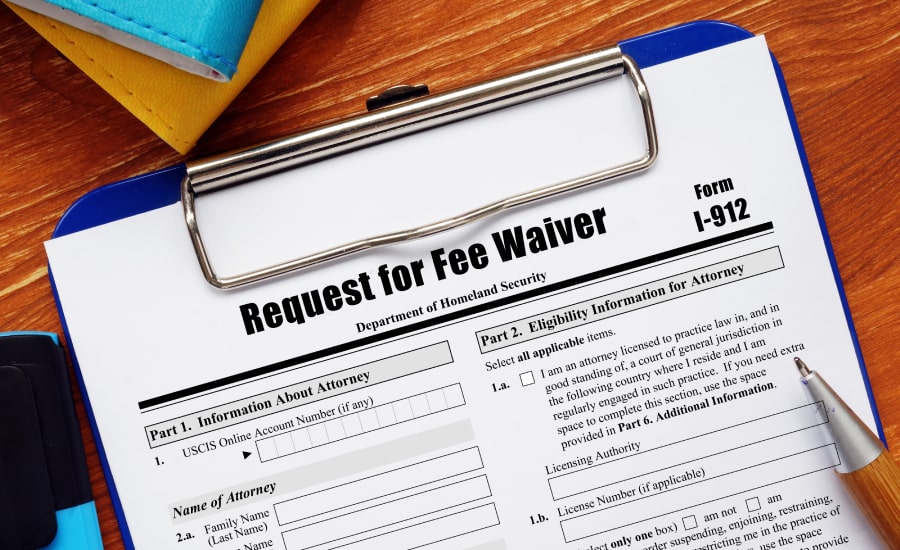

If you suffered injuries in a construction accident, it’s important to understand your rights following the incident, from medical care to workers’ compensation, legal representation and beyond.
We’ll detail your rights after a construction accident, along with the difference between workers’ compensation and a personal injury claim.
In addition, we’ll explain what to do after an accident, share who can be held liable and provide answers to some frequently asked questions on the topic.
What Rights Do You Have After A Construction Accident?
Knowing your rights after a construction accident is an important factor in receiving medical care and seeking the compensation you deserve for your injuries.
Your rights after a construction accident include:
1. Medical Attention
Seeking medical attention is a fundamental right if you were injured in a construction accident. It means you are entitled to:
- Immediate access to medical care for your injuries
- Evaluation and diagnosis by qualified healthcare professionals
- Appropriate and timely treatment, including emergency procedures, medication, surgeries, rehabilitation and other medical interventions
- Access to various specialists depending on the nature of your injuries, including orthopedic surgeons, physical therapists, neurologists and psychologists
- Accurate and detailed medical documentation, including medical records and reports of treatment received, which can be used for future medical needs, insurance claims and legal proceedings
2. Fair Treatment
Following a construction accident, you have a right to fair treatment. This means:
- Your employer cannot force or coerce you into returning to work before you are physically able and medically cleared to resume your duties
- Your employer and colleagues cannot treat you in a discriminatory or adverse way because of your injuries or the time you need to recover
- Your job duties cannot be changed without prior discussion
- Your working hours cannot be reduced without prior discussion
3. Workers’ Compensation
Workers’ compensation, or worker’s comp, is a form of insurance that protects employees who suffer work-related injuries, regardless of who is responsible for the accident.
Workers’ comp laws differ by state, but this type of insurance typically includes medical expenses, lost wages, disability and other injury-related costs.
Workers’ compensation provides immediate support following a work accident, reducing the need for lengthy and costly legal battles.
To file a workers’ compensation claim:
- Report the injury to your employer: Inform your superiors of the accident and your injuries in writing, as soon as possible, taking into account the legal deadlines. For example, in New York, you need to notify your employer within 30 days or you may lose your right to workers’ comp benefits.
- Complete the workers’ comp claim forms provided by your employer: List injury-related information, such as the date and cause of the injury and medical treatment you received. Since each state has its own workers’ compensation system and regulations, claim forms can vary. If you suffered a construction accident in New York, you need to complete Form C-3.
- Complete a medical evaluation: Get examined by a healthcare provider typically chosen by your employer’s insurance company.
- Submit your claim to the workers’ compensation board or insurance company: File your claim with the required medical documentation. The time you have to submit your claim may vary by state. In New York, for example, it is two years.
- Wait for a decision on your case: The workers’ compensation board or insurance carrier will review your claim and determine your eligibility for benefits. They may request additional information or conduct an investigation.
- Hire a workers’ compensation attorney: While not required, sometimes an attorney who practices in the area of workers’ compensation can help you navigate the process, submit the appropriate medical documentation to the workers’ compensation board or agency, and advocate on your behalf.
- Receive workers’ comp benefits: If your claim is approved, you will receive the benefits you are entitled to, which may include medical expenses, disability and lost wages.
4. Legal Representation
Your right to legal representation means you have access to knowledgeable attorneys who can:
- Explain your legal options
- Help you handle legal complexities
- Advocate for your interests
- Pursue fair compensation on your behalf
To find and choose a construction accident lawyer, consider the law firm’s reputation, experience, track record, client testimonials and fee structure.
Representing construction accident victims for over five decades, The Law Offices of Spar & Bernstein is proud to have hundreds of success stories and satisfied clients. Schedule a consultation with our team to start receiving the legal representation you deserve.

Workers’ Comp Claim vs. Personal Injury Claim
There are several key differences between workers’ comp and a personal injury claim.
1. Liability
In a workers’ compensation claim, you are entitled to workers’ comp benefits without the need to prove negligence on the part of your employer.
In a personal injury claim, you must prove fault or negligence by the party responsible for the accident.
2. Compensation Amount
In a workers’ compensation claim, you can receive compensation for some economic damages, such as medical expenses and part of lost wages.
However, you cannot receive compensation for non-economic damages, such as pain and suffering, emotional distress, loss of enjoyment of life and loss of consortium.
In a personal injury claim, you can pursue compensation for all types of damages you have suffered, including economic and non-economic damages.
3. Process
In a workers’ compensation claim, you follow a streamlined administrative process in line with the workers’ comp laws of your state.
In a personal injury claim, you are allowed to pursue various solutions, from negotiating a settlement with the at-fault party or their insurance provider to taking your case to court.
4. Time Limitations
In a workers’ compensation claim, the statute of limitations varies depending on the state laws and is typically up to two years.
In a personal injury claim, the time you have to pursue compensation also changes from state to state and can be from one to six years.
Who Is Liable For A Construction Accident?
Although in most cases, workers’ comp will prevent you from suing your employer directly, you may still have the right to seek compensation from various third parties who contributed to your accident, including:
- General contractors who were in charge of overseeing the project, but failed to provide safe working conditions or adequate training.
- Subcontractors who were responsible for specific tasks or areas of the project and who contributed to the accident through actions, inactions or negligence.
- Property owners who were aware or should have been aware of the hazardous conditions on the property and who failed to provide a proper warning or address the situation.
- Architects and engineers whose inadequate planning, design flaws or faulty specifications contributed to the accident.
- Manufacturers and suppliers whose faulty or defective products contributed to the accident.
- Safety inspectors or state agencies who were responsible for ensuring compliance with safety standards and who failed to identify hazards or enforce regulations thus contributing to the accident.
- Other third parties, such as neighboring property owners, drivers and pedestrians who acted negligently and contributed to the accident.
In a very limited number of situations, you can sue your employer for negligence. Consult our experienced attorneys at Spar & Bernstein to better understand your rights and options.

What To Do After A Construction Accident
Whether you are seeking advice after an incident or you are working in the construction industry and want to make sure you know your rights in case of an accident, here is what to do after a construction site accident:
- Seek immediate medical attention: Medical experts will assess and treat your injuries to check for any hidden traumas that may put your health and life at risk.
- Report the accident to your superiors in writing: Provide detailed information about the accident following your company’s reporting procedures. Keep a copy of your report. Put everything in writing that you are providing to your employer.
- Document the accident scene: Take photos or videos of the accident location, including visible hazards and equipment. Make sure to take shots of your injuries. This evidence will help you support your case if you decide to file a personal injury claim.
- Gather information: Talk to witnesses who were present at the accident scene. Collect their contact details and notes about what they observed. Witness testimonies can be crucial in defining liability or negligence. If any labor materials that contributed to, or were a factor in, causing your injuries, hold onto them and store them in a safe place because they could be used as evidence later down the road.
- Call an experienced personal injury attorney: Seek legal advice from a lawyer who is knowledgeable in personal injury and workers’ compensation cases. Partnering with a trusted attorney will ensure your rights are protected and allow you to pursue fair compensation for your injuries.
- File a workers’ compensation claim: Complete workers’ comp claim forms and submit them, along with relevant documentation, such as medical records and incident reports.
- Keep a record of medical treatments and expenses: This documentation will be essential for demonstrating the extent of your injuries and supporting your claim for compensation.
- Keep in touch with your lawyer throughout your recovery process: Update your lawyer about your medical progress and prognosis, along with any changes in your condition and let them handle all interactions with your employer and insurance company.
- Educate yourself about your rights: Know and understand the applicable laws and regulations in your state. Be aware of your entitlement to workers’ comp, personal injury compensation and other benefits.
How Spar & Bernstein Can Help You Protect Your Rights After A Construction Accident
For 50+ years, our knowledgeable and compassionate construction accident lawyers have been guiding victims of construction accidents through the legal process and helping them obtain the compensation they deserve.
If you were injured in a construction accident, our experienced personal injury team will:
- Investigate your accident details
- Gather evidence and talk to witnesses
- Talk to medical specialists to evaluate the scope of your injuries
- Determine your case’s worth
- Identify factors that can increase your case settlement, such as disfigurement, scarring, permanent disability, need for expensive surgeries and medication or use of steroid injections
- Collect, prepare and file all needed documents
- Negotiate with insurance companies on your behalf
- Represent you in court against the attorneys for the various insurance carriers and companies
- Represent you at trial if a satisfactory settlement is not reached
From workers’ comp to third-party personal injury claims, our tenacious attorneys will work tirelessly to secure you the highest possible compensation while you prioritize your recovery.
FAQs About Your Rights After A Construction Accident
Have more questions about your rights after a construction accident? Check out our section of FAQs below.
1. Can I be terminated for filing a workers’ comp claim?
If you suffered injuries in a construction accident, you have the right to file a workers’ compensation claim. If you face adverse actions or are terminated, contact a knowledgeable employment attorney to protect your rights.
2. Can I file a personal injury claim on top of a workers’ comp claim?
Yes, in most cases you will have the right to file a personal injury claim against third parties in addition to your workers’ compensation claim. Talk to our team so we can research your case and advise you of your options.
3. How long do I have to file a personal injury claim after a construction accident?
The time period you have to file a personal injury claim varies by state. In New York, for example, it is three (3) years from the date of the accident.
4. Will my personal injury claim be taken to court?
Most personal injury claims are negotiated and settled outside of court. They are taken to trial only if a fair settlement cannot be reached.
Partnering with our experienced lawyers at Spar & Bernstein will ensure your case is handled professionally and your rights are protected at all times, both inside and outside of the courtroom.
5. What can I do if I lost a loved one in a construction accident?
If you lost a loved one due to a construction accident, you may:
- Be eligible for death benefits through workers’ compensation
- Have the right to file a wrongful death claim against the parties who contributed to the accident
Contact our experienced construction accident lawyers at Spar & Bernstein to better understand your rights and pursue possible compensation.





